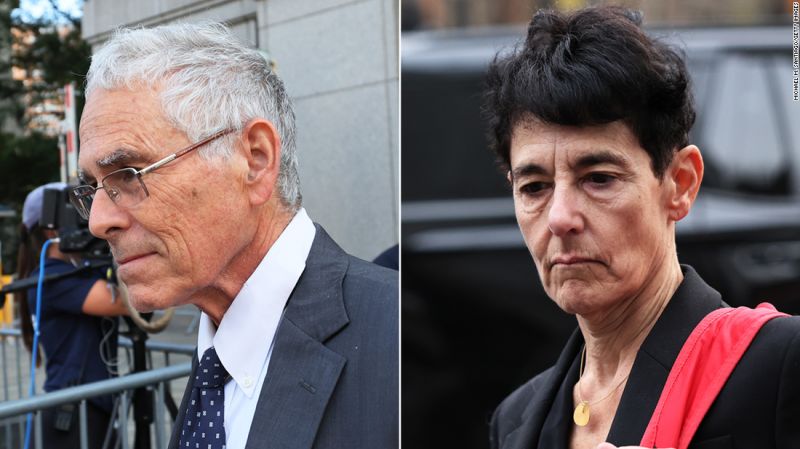Bankrupt crypto exchange FTX is suing founder Sam Bankman-Fried’s parents, accusing them of siphoning millions of dollars in company funds to enrich themselves and their “pet causes.”
The lawsuit aims to recover funds that the company claims were “fraudulently transferred and misappropriated” by Bankman-Fried’s parents.
Joe Bankman and Barbara Fried, both tenured Stanford law professors, either knew “or ignored bright red flags” that indicated their son and his business partners were “orchestrating a vast fraudulent scheme,” according to the lawsuit.
Attorneys representing Bankman and Fried issued a statement calling the lawsuit’s claims “completely false” and “a dangerous attempt to intimidate Joe and Barbara and undermine the jury process just days before their child’s trial begins.”
Neither Bankman nor Fried have been criminally charged with wrongdoing.
FTX collapsed into bankruptcy in November last year as questions about its finances rattled crypto markets and prompted a sudden, massive drawdown of customer funds. It is now at the center of a federal investigation into what prosecutors have called one of the biggest financial frauds in US history.
Bankman-Fried, who is 31 years old, has pleaded not guilty to multiple charges of fraud and conspiracy and is scheduled to go on trial October 3.
Several of his former business partners have entered guilty pleas in cooperation with prosecutors from the Southern District of New York.
The lawsuit against Bankman and Fried, filed late Monday, claims that the couple discussed with their son transferring a $10 million cash gift and a $16.4 million luxury property in the Bahamas to them, even as the company was on the verge of insolvency.
Despite Bankman-Fried’s assertions that his parents weren’t involved in “any of the relevant parts” of FTX, the lawsuit claims that his parents played a role from the beginning.
Bankman, a renowned tax attorney, repeatedly described FTX as a “family business,” the filing states.
It describes Bankman as having broad oversight of the company as early as 2018, both as an unofficial adviser and later as a paid employee.
The lawsuit also accuses Bankman of helping cover up fraud, including one instance in which he “failed to investigate … a whistleblower complaint that threatened to expose the FTX Group as a house of cards.”
Fried, an expert in legal ethics, never held a formal position within her son’s crypto empire, but the lawsuit claims she also played a role as an adviser, particularly when it came to Bankman-Fried’s copious political contributions. She described herself as her son’s “partner in crime of the noncriminal sort,” the lawsuit claims.
As early as 2020, it says, Fried became Bankman-Fried’s “point person” for his political contribution strategy, describing herself as Bankman-Fried’s “partner in crime of the noncriminal sort.” Bankman-Fried made known to several FTX Group employees his intent to rely on his mother’s direction regarding political contributions—contribution recipients, amounts, and disclosure requirements—and encouraged them to likewise follow Fried’s advice, according to the filing.
Before its shocking collapse, FTX was one of the largest and buzziest crypto companies, boasting celebrity endorsements and Super Bowl ads encouraging the public to give crypto trading a try.
But according to prosecutors, FTX used customers’ funds to finance risky bets at its sister hedge fund, Alameda Research, which was also founded by Bankman-Fried.
Most of those customers’ deposits remain in limbo until the bankruptcy is resolved.
FTX is now run by John J. Ray III, a corporate restructuring expert who testified earlier this year that the FTX case is one of “old-fashioned embezzlement.”
At the time it filed for bankruptcy, the FTX exchange owed customers approximately $8.7 billion. In April, FTX told the bankruptcy court it had recovered $7.3 billion in assets. Earlier this month, a bankruptcy judge granted FTX permission to liquidate its digital assets — valued by the company at around $3.4 billion — to repay customers.
Shortly after Ray, who oversaw Enron’s liquidation in the early 2000s, took over at FTX, he told the bankruptcy court that he had never seen “such a complete failure of corporate controls” and “absence of trustworthy financial information” in his career.
Read the full article here










